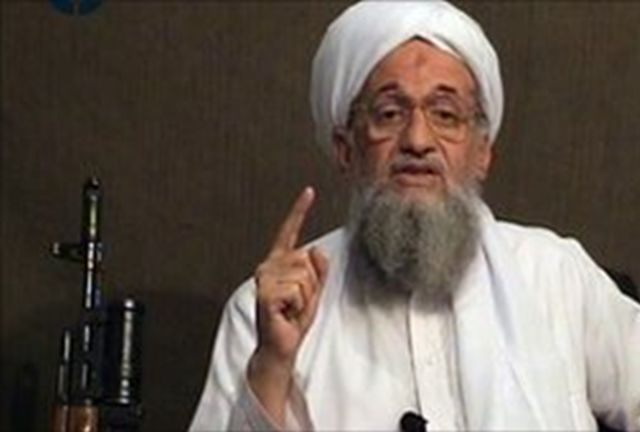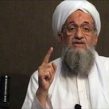
Understanding Strategic Change in al-Qaeda’s Central Leadership after Bin Laden
Publication: Terrorism Monitor Volume: 9 Issue: 23
By:

Since the leader of al-Qaeda, Osama Bin Laden, was killed on May 2, much analysis has appeared speculating potential changes to the organization and its leadership. This article aims to answer the basic question of in which direction core al-Qaeda (based along the Afghanistan-Pakistan border) will go in the post-Bin Laden era according to the ideology of its remaining leaders. These figures include Egyptian jihadist Dr. Ayman al-Zawahiri, who will probably emerge as the undeclared leader, as al-Qaeda members considers themselves not an organization, but rather “vanguards” of the jihadist movement. As al-Qaeda ideologue Abdul Majid Abdul Majid put it: “Al-Qaeda is no longer just a hierarchal organization [built] on specific names, but has become a jihadi mission held [in common] by all mujahedeen of the umma [Islamic community].” [1]
Some indication of al-Zawahiri’s emerging role can be found in his eulogy for Osama bin Laden which was released on jihadi websites on June 8. [2] In the message, entitled “The Noble Knight Alighted,” al-Zawhiri announced the renewal of al-Qaeda’s Bai’a (oath of allegiance) to the Amir al-Mu’mineen (Commander of the Faithful) Mullah Omar, indicating that al-Zawahiri has the authority to do so on behalf of those “vanguards.”
In order to assess the future behavior of al-Qaeda this article will examine the ideology of three members of al-Qaeda’s Shura council in addition to al-Zawahiri: Abu Yahya al-Libi (a.k.a. Hassan Muhammad Qaid), Abu Abdulrahman Attiya al-Libi (a.k.a. Jamal Ibrahim Shtelwi al-Misrati) and Abdul Majid Abdul Majid. A fourth Shura member, Abu Khalil al-Madani, is not included in this analysis due to a lack of information about his views.
Saif al-Adel in the al-Qaeda Leadership
Although al-Zawahiri has been described as the deputy leader of al-Qaeda over the last 15 years, some recent reports have suggested that Egyptian commander Saif al-Adel would be appointed as the new al-Qaeda leader. However, al-Adel is a military professional, as can be noted from his writings, which means that his lack of ideological credentials make such reports unlikely. [3] A retired Egyptian military officer, al-Adel is believed to be the leader of al-Qaeda’s military committee and returned to Waziristan in 2010 after being released from detention in Iran (Foreign Policy, May 26). Saif al-Adel is commonly identified in reports as the alias of a retired Egyptian intelligence (or Special Forces) officer named Muhammad Ibrahim Makkawi; however, there are reasons to question this identification. Al-Adel’s father-in-law, an Afghan jihad veteran named Abu Hamid al-Masri (a.k.a. Mustafa Hamid), has denied Makkawi is al-Adel’s real name. In 2004, the London-based “Islamic Media Observatory” released a statement saying al-Adel and Makkawi are not the same person. [4] More recently, an Egyptian newspaper published a letter from an individual identifying himself as Muhammad Ibrahim Makkawi, a veteran of the Afghan jihad, stating that he is not Saif al-Adel and has been experiencing problems as a result of this misidentification. The author appears to also be in the Afghanistan-Pakistan region, but claims to have denounced al-Qaeda since 9/11 (al-Youm al-Sabi’i, May 18).
It is important to note that killing Bin Laden does not mean the dismantlement of al-Qaeda. A June 16, 2010 video recording by Abu Yahya al-Libi, entitled “Our Leaders’ Blood Fuels Our Battle”, eulogized the former leaders of al-Qaeda in Iraq, Abu Omar al-Baghdadi and Abu Hamza al-Muhajir, who were killed in a U.S. air strike on April 19, 2010. Al-Libi’s eulogy indicates the mind-set influencing the behavior of al-Qaeda post-Bin Laden: “There is no mujahid who has fought in bouts and stepped into battlefields, whether he is a leader or a soldier, [who] has not prepared himself for death; he is eagerly awaiting it, hour by hour, no, moment by moment… this worship [Jihad], which is part of our glorious religion, cannot be stopped, disrupted or delayed by the death, killing or capture of someone, whoever he is and [whatever] his status is.” [5] Abu Yahya escaped from the American detention centre in Bagram-Afghanistan in 2005. Since then he has appeared as one of the most prominent ideologues of Salafi-Jihadism after studying Islamic fiqh (jurisprudence) in Mauritania. Jihadists often refer to his writings, especially his opinions on killing civilians.
Far Enemy and Near Enemy
Bin Laden was fond of the idea of fighting against “the far enemy” (the “Crusaders and Jews”). Seventy percent of his speeches and appearances were focused on the far enemy, with 20% consisting of general advice and instructions to jihadis, and just 10% directed at toppling local regimes of “the near enemy” (“apostate” regimes in the Muslim world). [6] These figures suggest that although Bin Laden served as a symbol for jihadis, he was a strategist more than a religious ideologue.
Unlike Bin Laden, al-Zawahiri is focused more on the near enemy, this being due to his background as leader of a national jihad group before it adopted Salafism and joined the larger international jihad movement in the 1980s, of which al-Qaeda is the prime example. Al-Zawahiri’s focus on “the near enemy” comprised 50% of his speeches; in contrast “the far-enemy” was the focus of only 15% of his speeches, the rest being comprised mainly of general advice and instructions. The works of Abu Yahya al-Libi, Abu Abdulrahman Attiya al-Libi and Abdul Majid Abdul Majid reflect a similar lack of focus on fighting the far enemy. This suggests that core al-Qaeda will focus on targeting near enemies in the future. In his June 8 eulogy for Bin Laden, al-Zawahiri made explicit calls for jihad against the near enemy in Pakistan, Syria, Yemen and Libya.
Ideologues and Operatives
Al-Qaeda and all its branches have a functional division between political-ideological leaders and military operatives. Switching broad strategies would increase the roles of certain leaders from both groups. For instance, al-Zawahiri will rely on operatives who prefer to target near enemies, such as his old comrade Abu Muhammad al-Masri (a.k.a. Abdullah Ahmad Abdullah). Al-Masri’s preference for targeting “near enemies” was a source of disagreement with Bin Laden himself after the 9/11 attacks (al-Sharq al-Awsat, May 17, 2003). Al-Masri is an al-Qaeda operative and appears on the FBI’s most wanted list. He is accused of involvement in the August 7, 1998 bombings of the U.S. embassies in Dar es Salaam and Nairobi and is believed to be located in the area of the Afghanistan-Pakistan border.
Al-Zawahiri will also need to rely on operatives such as al-Adel and Muhammad Ilyas Kashmiri to maintain al-Qaeda ties with local insurgents in the Afghanistan-Pakistan region. Kashmiri’s current status is uncertain; a statement allegedly from Harkat-ul-Jihad-al-Islami (HuJI) announced his death in a June 3 drone strike in North Waziristan, although the spokesman was previously unknown, there were mistakes in the text unlikely to be made by a HuJI spokesman. Moreover, the photo of an allegedly dead Muhammad Ilyas Kashmiri was actually the dead body of Abu Ismail Khan, one of the LeT terrorists involved in the 2008 Mumbai attack (The News International [Islamabad], June 7; Asia Times Online, June 8). Kashmiri is known to be an al-Qaeda commander and leader of the Waziristan-based and HuJI-associated “Brigade 313,” which is made up of members of the Tehrik-e-Taliban Pakistan (TTP) and allied Kashmiri groups, including Lashkar-e-Taiba (LeT) and the Karachi-based Jundallah movement.
However, focusing on the near enemy could be the first challenge to al-Zawahiri’s leadership. Al-Qaeda’s rhetoric promoting violent jihad has had very little effect on the youths agitating for political change in the streets of the Arab world, which has also hurt its recruitment base.
However, if political violence were to continue to escalate in Libya, Syria and Yemen, for instance, it would provide new opportunities for a movement that has always gravitated to areas in crisis.
Individual Jihad
In this context, it is expected that the ideological role of Abu Abdulrahman Attiya al-Libi will increase. Attiya is a prominent al-Qaeda theorist and a leader of the jihadist movement in Libya (see Terrorism Monitor, August 12, 2010). A graduate of Shari’a studies in Mauritania and an expert in explosives, he is considered close to al-Zawahiri. He was also close to Bin Laden and al-Qaeda in Iraq leader Abu Mus’ab al-Zarqawi before the latter was killed in 2006. Attiya has also been described as a coordinator between al-Qaeda leaders and other Islamic groups. Looking at his writings, one notes that all of them fell into the category of “general advice and instructions” until the turmoil in Libya started last February. At that point he started to send messages more regularly denouncing Mu’ammar al-Qaddafi and NATO military operations in Libya.
Attiya al-Libi’s role as a general theorist is essential for al-Qaeda. This was indicated in a recent two-part video recording produced by al-Sahab Media Production entitled “La Tukalif ila Nafsak” (You are not tasked [held responsible] except for yourself only). The first one hour episode was devoted to encouraging al-jihad al-fardi (individual jihad), particularly among Muslims who live in the West. The tactic was described in the recording by both Attiya al-Libi and Abu Yahya al-Libi (as-ansar.com, June 3). [7] Attiya al-Libi stressed the importance of individual jihadi attacks being in line with “the mujahideen’s general strategy… all Western countries are not the same.” He further urged potential jihadis to contact “the leaders of mujahideen, if that’s possible” before undertaking individual operations.
Besides its tactical advantages, individual jihad suggests that the “far enemy” remains a priority for al-Qaeda. This will increase the importance of the work of Abdul Majid, who clearly stated the priority of targeting the United States when he was asked about the strategy of jihadists: “As for the overall strategy of jihad, I think it is known to all, which is [based] on the importance of focusing on the head of kufr [disbelief] and corruption in the globe – America.” [8]
Conclusion
Al-Qaeda will continue after Bin Laden by relying on its ideology, but a change will be seen in its behavior. These changes will be reflected in new roles for the movement’s leaders, particularly those involved in developing the group’s ideology.
Under al-Zawahiri’s leadership, al-Qaeda will be more near-enemy-oriented, but this will depend on developments in the Arab world and the direction of the popular opposition movements. Relying on military operatives to maintain ties with locals in the region could become a problem for core al-Qaeda if they do not dedicate an ideologue for such missions. Though al-Zawahiri will play an important role as al-Qaeda’s new leader, the increased roles of various ideologues will mean that the movement will be led in a more collective fashion than has existed previously.
Notes:
1. Not much is known about him or whether this is his real name. Unlike most Egyptian jihadists he has not come from al-Gama’a al-Islamiya or al-Jihad, but is rather a product of the traditional Egyptian Salafist movement. For the full text of his interview, see: https://www.tawhed.ws/r?i=19061015, June 19, 2010.
2. https://www.as-ansar.com/vb/showthread.php?p=193941.
3. For Saif al-Adel’s writings, see: https://www.tawhed.ws/a?a=nkpabwye.
4. https://www.aljahad.info/vb/showthread.php?t=5859.
5. The video can be watched at this link: https://www.archive.org/details/dema3.
6. All figures compiled by the author.
7. For more details on the al-jihad al-fardi tactic, which was first encouraged by Bin Laden, see Terrorism Monitor, June 17, 2010.
8. https://www.tawhed.ws/r?i=19061015, June 2010.





